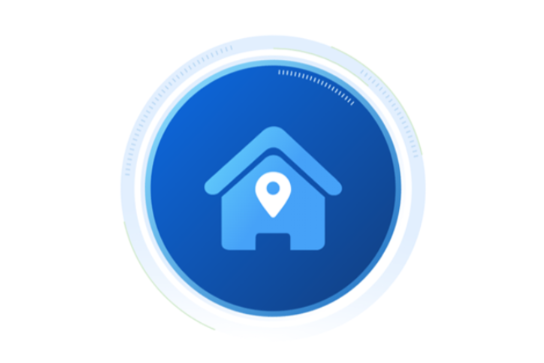In today's big data era, Web data crawling has become an important means for enterprises to obtain market intelligence, user behavior analysis and product optimization. However, in the crawling process, problems such as IP blocking and restricted access are often encountered. At this time, choosing a suitable proxy IP has become the key to solving these problems. Among the many types of proxies, residential IP proxies have gradually become the first choice for crawling Web data due to their unique advantages. This article will discuss in detail why residential IP proxies are chosen for Web data crawling from several aspects.

1. What is a residential IP proxy?
Residential IP proxy refers to the use of a real residential network broadband connection as the IP address of the proxy server. These IP addresses are usually assigned to individuals or home users by Internet service providers (ISPs) and have a high degree of authenticity and anonymity. By renting these residential IPs, users can conduct network activities without exposing their real IP.
2. Advantages of residential IP proxies
1. Higher anonymity
Residential IP proxies use real home broadband IP addresses, which are randomly distributed in various cities and regions, making them difficult to track and identify. In contrast, the IP addresses of data center IP proxies are usually concentrated in specific data centers, making them easier to be identified and blocked by websites. Using residential IP proxies can greatly enhance the anonymity of users, protect personal privacy and data security.
2. Better stability and speed
Residential networks are usually provided with stable high-speed broadband connections by ISPs, so residential IP proxies usually have higher stability and speed. This is especially important for web data crawling tasks that require large amounts of data transmission and real-time response. In contrast, data center IP proxies may cause unstable connections due to network load, hardware failure, etc., affecting crawling efficiency.
3. More difficult to be blocked
Due to the authenticity and anonymity of residential IP proxies, it is difficult for websites to associate them with crawlers. Even if a residential IP is identified and blocked by a website, users can easily change to another IP to continue crawling tasks. Data center IPs are more likely to be blacklisted by websites due to their high frequency of use and concentrated distribution in data centers.
4. Rich geographical coverage
Residential IP proxies can cover different regions across the country and even around the world. This means that users can crawl data from different geographical locations to meet the needs of cross-border data analysis. For users who need to analyze market trends in specific regions, residential IP proxies are undoubtedly an ideal choice.
5. Higher crawling success rate
Due to the high anonymity and stability of residential IP proxies, using them for web data crawling usually achieves a higher success rate. Even when facing websites with strict anti-crawler policies, residential IP proxies can effectively bypass detection mechanisms and successfully crawl the required data.
3. How to choose a residential IP proxy?
When choosing a residential IP proxy, users need to consider the following factors:
1. The reputation and service quality of the proxy service provider
Choosing a proxy service provider with good reputation and stable service quality is the key to ensuring the smooth progress of the crawling task. Users can evaluate the reliability of the service provider by checking user reviews, understanding the service provider's technical support and after-sales service.
2. The size and availability of the IP pool
Residential IP proxy service providers should provide a large enough IP pool to meet the large number of users' crawling needs. At the same time, the availability of IP is also an important indicator for evaluating the quality of proxy services. A high-availability IP pool can ensure the continuity and stability of crawling tasks.
3. Geographical coverage
Users should choose appropriate geographic coverage according to their needs. If cross-border data analysis is required, a residential IP proxy covering major regions around the world will be a better choice.
4. Concurrency and speed
For users who need to efficiently crawl large amounts of data, the concurrency and speed of the proxy are crucial. Users should choose a proxy service provider that can provide high concurrent requests and fast responses.
4. Conclusion
In summary, choosing a residential IP proxy for web data crawling has significant advantages. It not only improves the anonymity, stability, and success rate of crawling, but also meets the needs of cross-border data analysis. However, when choosing a proxy service provider, users need to consider multiple factors to ensure the smooth progress of the crawling task. Through reasonable selection and configuration, residential IP proxy will become a powerful tool for enterprises to crawl web data.
Related Recommendations
- What role does the python crawler proxy pool play?
- SOCKS5 Agents and Firewalls: How to Build a Multi-Layer Security Protection System
- Use home IP to avoid being recognized as malicious users by websites
- Shrimp skin multi-account operation: How to use proxy IP to avoid associated titles?
- WhatsApp Cross-Border Marketing: How to Use Proxy IP to Expand Overseas Customers?
- 5 things you need to test before buying and using static residential agent IP
- 98IP tells you the key points of distributed crawler design
- Proxy server ip filtering: an important security measure
- Why do crawlers like to use Python?
- Unlock voting freedom: An anonymous voting strategy for dynamic residential IP?

